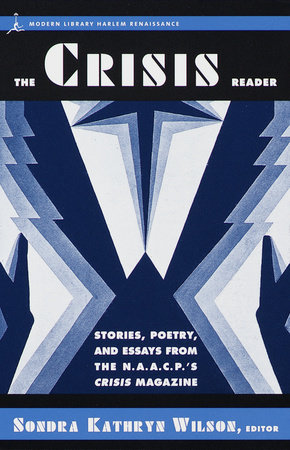Gwendolyn BennettTo UswardLet us be still
As ginger jars are still
Upon a Chinese shelf.
And let us be contained
By entities of Self. . . .
Not still with lethargy and sloth,
But quiet with the pushing of our growth.
Not self-contained with smug identity
But conscious of the strength in entity.
If any have a song to sing
That's different from the rest,
Oh let them sing
Before the urgency of Youth's behest!
For some of us have songs to sing
Of jungle heat and fires,
And some of us are solemn grown
With pitiful desires,
And there are those who feel the pull
Of seas beneath the skies,
And some there be who want to croon
Of Negro lullabies.
We claim no part with racial dearth;
We want to sing the songs of birth!
And so we stand like ginger jars
Like ginger jars bound round
With dust and age;
Like jars of ginger we are sealed
By nature's heritage.
But let us break the seal of years
With pungent thrusts of song,
For there is joy in long-dried tears
For whetted passions of a throng!
"to usward" was published in may 1924.Arna BontempsHopeLone and dismal; hushed and dark,
Upon the waves floats an empty bark.
The stars go out; the raindrops fall,
And through the night comes a ghostly call--
My lone and dismal life's a-float
Upon the seas like an empty boat.
Above the heights where the sea-gulls soar,
The thunder lifts its resonant roar.
Like a jagged arrow a flash is sent,
That splits the clouds with a double rent.
And just beyond my bark that drifts,
Moonbeams steal through the kindly rifts.
DirgeOh bury my bones in the dark of the moon,
In a place where the soil is bare,
And none will say that I mar the clay
Or the vine buds there too soon.
But the worm will think me sweet somehow.
As he gnaws away I'll hear him say,
"I scorn the taste of white flesh now".
"Hope" and "Dirge" were published in August 1924 and May 1926, respectively.The ServantIn this short story, Fenton Johnson introduces the reader to Elizabeth (Eliza) Jan, an African-American servant. Liza, a Southerner, finds herself working for an "uppity" Chicago black family. Although the indignities of racism have always been part of her existence, she now experiences a feeling of separation based on social class within her own race. This short story was published in August 1912.
"Ah sho' ain't gwine tuh wohk foh dese hyar cullud folks no mo'. 'Deed ah isn't."
And in these words, spoken during great emotional stress, Eliza Jane, three weeks removed from the Southland, announced to herself her dissatisfaction with the Crawfords.
"It's nuffin' but wohk, wohk, wohk all de' time as if ah nevah gits tiahed. It's 'Liza dis and 'Liza dat an' nevah do dey say when de day am done: 'Won't you come wif us to de festival or de 'vival meetin'?' Ah's gwine tuh quit dese high-toned folks, an' git in some white fam'ly. Ah's too lonely heah."
The Crawfords were well-to-do Chicago Negroes. Mr. Crawford was a lawyer, who in recent years had acquired a fortune through real estate. His wife was the daughter of a Southern Congressman of re-construction days, and was consequently proud of her money and family. They had two children, Wallace and Aline, who were students of the university, and very popular among the young people of their race. According to their point of view those who were inferior to them intellectually were not their equals socially and the servant's position was the lowest plane of society. Mrs. Crawford was a prominent clubwoman and intimate with the leading social workers of both races. Mr. Crawford belonged to the Elmore Club, an organization of colored professional and business men, who had purchased a neat little clubhouse where they could play billiards and entertain their wives and friends at dances and whist parties. He had received his education at Fisk University and a Chicago law school, and was looked upon with high respect by the black world.
Eliza came to them from the backwoods of Georgia with one gingham dress and a pair of squeaky new shoes. Mrs. Crawford engaged her partly on account of her pretty face and her seeming willingness to do as she was bidden; and for a day or two the little Georgian appeared satisfied, for she was in financial straits and the liberal wages were uppermost in her mind. But when Mrs. Crawford advanced her half of her wages the irresponsible creature had enough to satisfy her few wants and began to discover the faults in her situation. Mrs. Crawford was too haughty; Aline too proud and cold; Wallace never had a pleasant word for her or asked her to go out with him; and Mr. Crawford was splenetic and hard to please. The work was too confining; she longed for the open air and for the freedom of her own Georgia land. Every night the lights on State Street shone so brightly, emphasizing her loneliness in a city where she had neither friends nor acquaintances.
In Georgia she was not confronted with the social problem. There she worked for the whites and associated with the blacks; there the color line obliterated every other line society should wish to draw. No rich Negroes asserted their superiority over her; she was just plain Eliza and they were Moses or Mandy, as the case might be. And now that she was up North, where money was the basis of social stratum, inferiority within the race was sickening and disappointing.
That was the situation that confronted her that Friday evening as she sat before the little mirror in her room.
Softly to her ears came the low strains of a violin. Music! How it touched her soul! Could she resist the spell? Could she, who loved to hear the drowsy humming of the bees and the endless song of the brook back there in Georgia, refrain from listening to the melody of rosin and bow? With low, measured step she left her room and went upstairs to the library, where the Friday Evening Culture Club, a young people's organization, was being entertained by Wallace and Aline. With a slight tremor, for she feared that she was breaking some social rule, she knocked on the door, which was presently opened by Wallace himself, standing before her with bow and violin.
" 'Scuse me, please. Ah jes' wants tuh heah de music, dat's all. Ah laks music so," she said, her voice trembling with fear.
"Oh, it is you," was all that Wallace said, as he motioned her to a seat in the corner.
There were about twenty young people in the library and the music room. They were elegantly dressed, intelligent in countenance, and many of them handsome. At the time Eliza entered Aline was playing a selection from Chopin on the piano, and the members of the club were conversing in low tones. Eliza could not understand the drift of their conversation; such names as Ibsen, Galsworthy and Shaw were mentioned. The problem novel was discussed, and current politics was made the ground for friendly argument among the boys. All this was Greek to the little unlettered girl in the corner, and her large black eyes opened wide with astonishment and her breath heaved with wonder.
Presently a young octoroon girl, who had acquired some reputation among her people as a concert singer, was called upon by the presiding officer to render a contribution to the program. Aline accompanied her as in a voice both sweet and technically correct she rendered a love song from Schubert, and for an encore sang in a tone of passionate tenderness the "Swing Low, Sweet Chariot," of plantation days.
The singer was followed by Wallace, who said: "I might give you something from the masters, but as we have music of our own I think it is better that we should cultivate that."
And so the young musician tuned his instrument and started to play the sorrow songs that can never die, because they are the genuine expression of American life. As the wild passionate music came forth, trembling with its pathos, a tear glistened in Eliza's eye. She saw the little cabin that she called home, the burning sand where the Negro children played, the cotton field with its wealth of snowy blossoms, and the lane on a moonlight night when the dusky lovers plighted their troth, free from the problem of color. She saw the grave where her mother lay, gone to sleep too soon because poverty had preyed on her and won the battle. She saw the river winding its way through eternity, bringing as its tribute the body of her father, given to the water by a crowd of hilarious poor whites, drunk with cheap corn whiskey.
And he, who thus played the old plantation songs, was he not more than she? He could throw on the screen of her mind pictures of her home life by means of an instrument that she could not even wield. He and his sister were versed in the lore and the music of civilization. Within her bosom was nothing save the emotions that she could feel so vividly but could not express. To him culture had granted the gift to interpret the joys and sorrows of the human soul; and some mysterious power had denied her that sweet privilege.
As all this flashed across her mind, she realized her utter littleness. Rising, her face wet with tears, she left the room so quietly that no one noticed her departure.
When she had reached her room she threw herself across the bed and sobbed as if her heart were bursting.
"Ah wants tuh luhn! Ah wants tuh luhn! Ah's so po' an' nuffin' lak. Ah wants tuh luhn."
Copyright © 1999 by Random House, Inc.. All rights reserved. No part of this excerpt may be reproduced or reprinted without permission in writing from the publisher.





